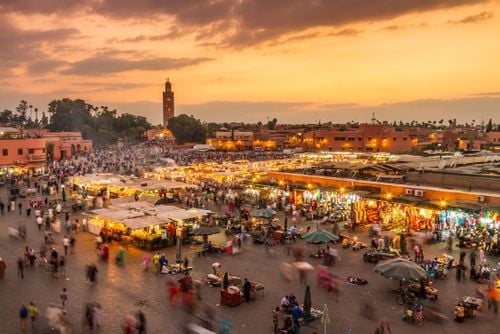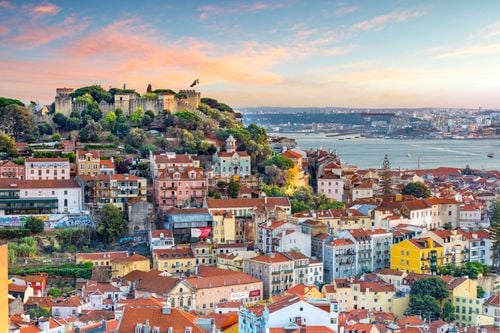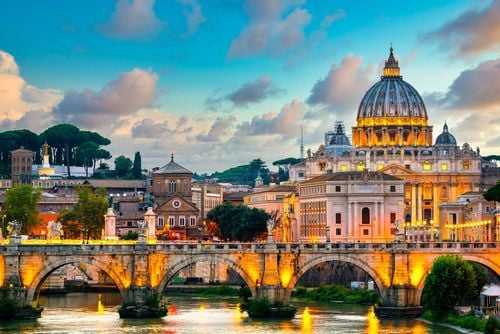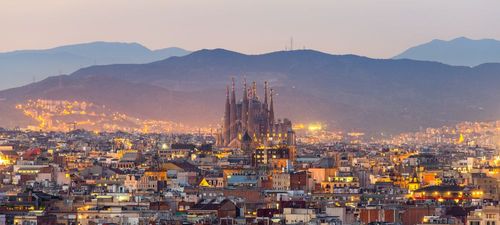A sacred land with many facets
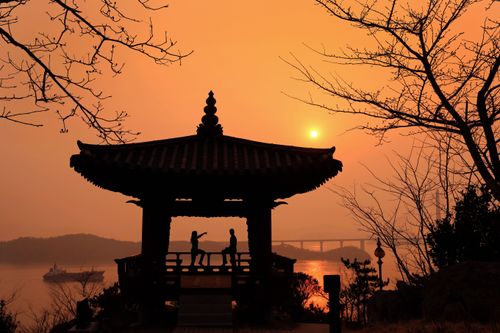
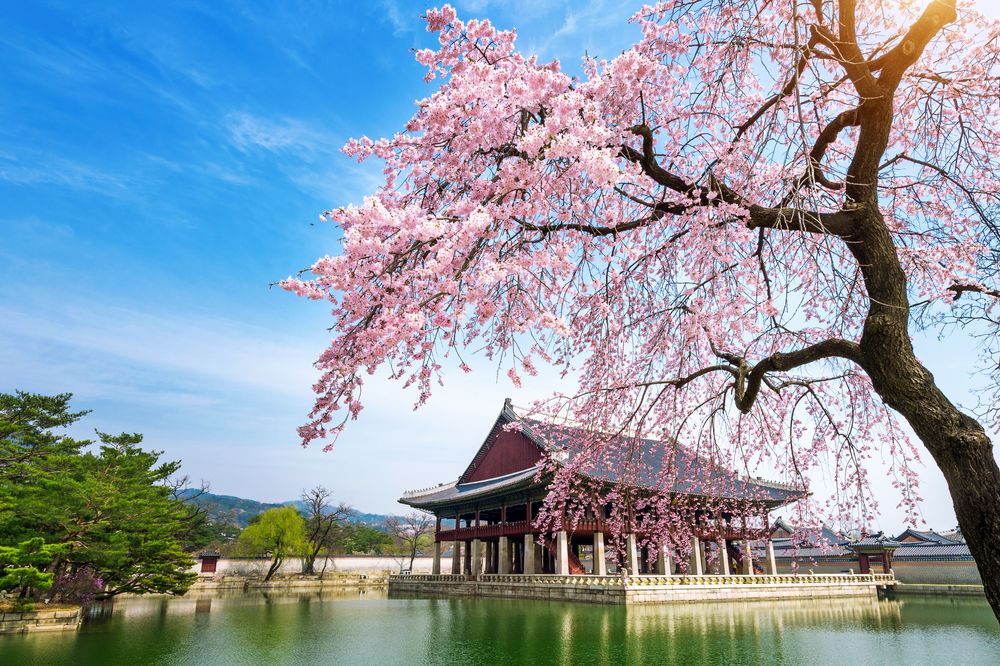
A sacred land with many facets
Psy, Parasite, BTS and Squid Game proved to the world what Asia already knew - South Korea is one of the most creative, artistic and coolest countries on earth. The big star of the show remains Seoul, a modern yet deeply touching and traditional metropolis where skyscrapers keep an eye on the rooftops of temples and villages, and street markets. Night and day, the bars sparkle, as do the pretty little tearooms and leafy public parks.

Fille coréenne vêtue de Hanbok, en robe traditionnelle, dans le Pays du Matin calme.
- © Nuttawut Uttamaharad / ShutterstockThe hotel scene is a vibrant mix of five-star international brands with luxurious interiors, solid business hotels with a host of modern facilities, designer accommodation and a few guest houses.
English is not widely spoken in South Korea, so travelling around the country still feels like an adventure. Its brilliant public transport system gets you everywhere; from the capital to the hotels, from the beach on Jeju Island to the seaside resorts of Busan and the picturesque hot spring hideaways near the mountains.
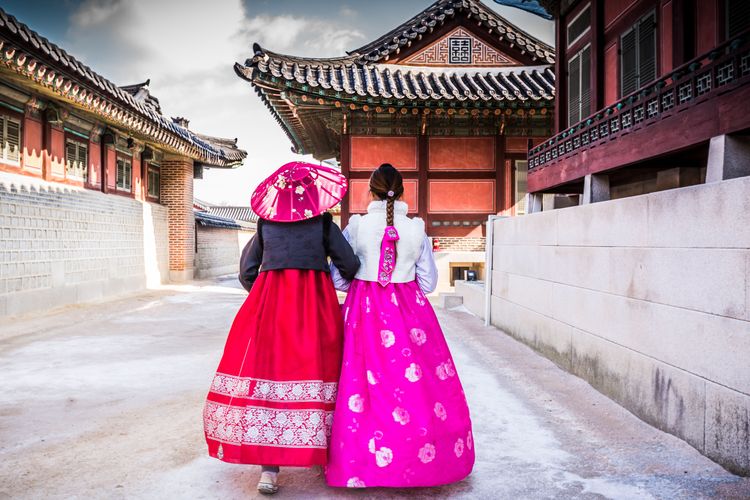
Korean girls dressed in Hanbok traditional cultural dress in South Korea
- © Avigator Fortuner / ShutterstockThe Land of the Morning Calm, as it is known, is full of contrasts. From bustling, modern Seoul, with its cutting-edge design buildings, virtual reality labs and AI robots, to peaceful UNESCO World Heritage cities, the country's facets are endless.

A night crossroads in Gangnam
- © Guitar photographer / ShutterstockChoosing an attraction in South Korea can quickly become a challenge. Indeed, the destination offers a myriad of reasons to wander its streets. Starting with its modern culture that has conquered the world, with headliners like BTS and Black Pink, as well as Oscar-winning films like Parasite and phenomenally successful TV shows like Squid Game. Some lucky travellers may even catch a glimpse of their favourite K-Stars while strolling through Gangnam, the luxury and celebrity district.
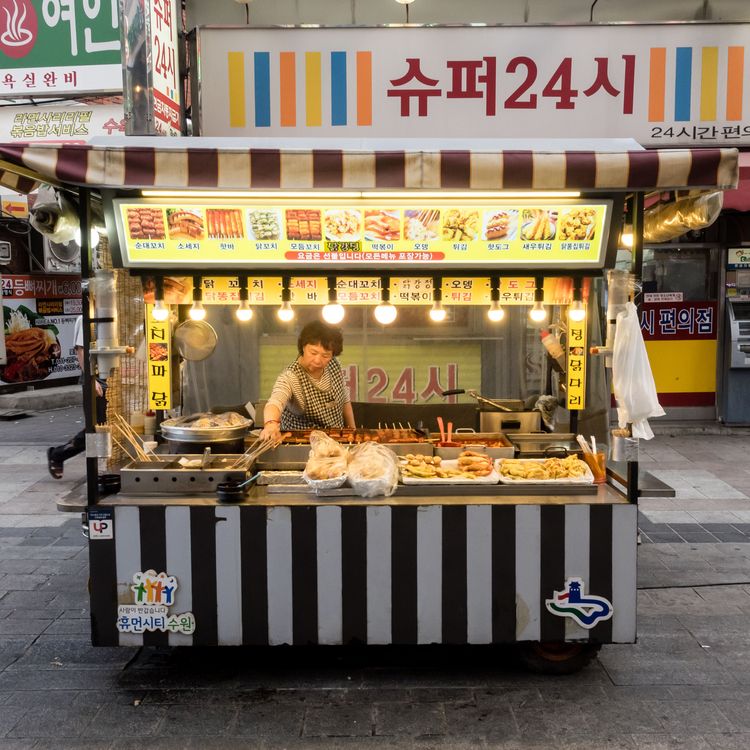
A kiosk in Suwon
- © VittoriaChe / ShutterstockSouth Korea also knows how to look after its travellers with its fashion and beauty shops and its many shopping centres. For a cultural shopping experience, there are traditional markets all over the country to sample food, buy souvenirs and see how the locals live and socialise.
Seoul is the largest city, the capital and the first stop in South Korea for most travellers. Monuments, relics of ancient kingdoms, towering skyscrapers, Buddhist temples, Michelin-starred restaurants and street food... there's never a dull moment in Seoul.
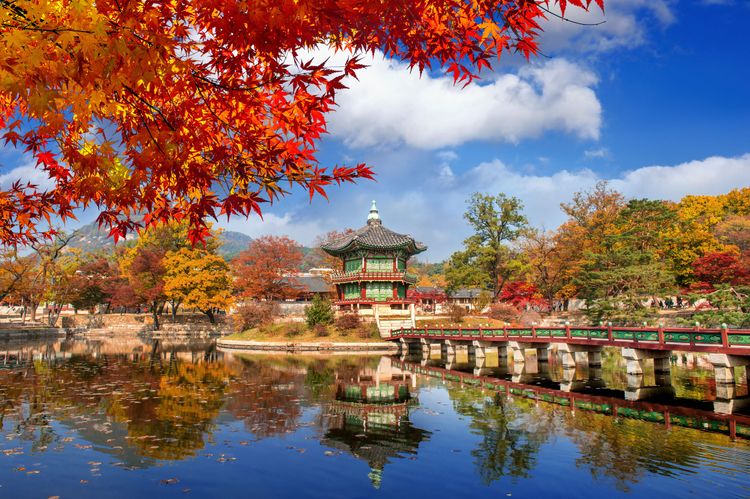
Gyeongbokgung Palace in autumn.
- © Guitar photographer / ShutterstockBusan, the country's second-largest city, is a thriving port city far removed from Seoul, both physically and culturally. This summer destination boasts some of the country's most popular beaches and bars. Busan is defined by its sprawling markets, fresh seafood, film festivals, the world's largest shopping mall, coastal temples and much more. Busan has a very photogenic face, especially at sunrise on the beach, on the green coastal streets on the edge of a cliff during a hike...
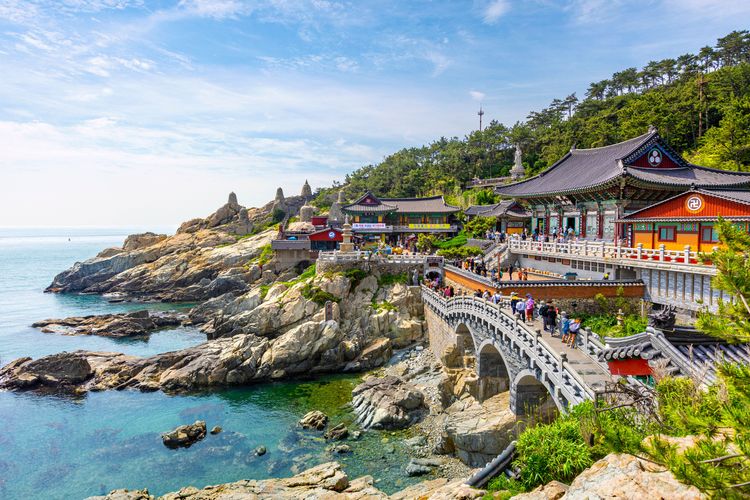
Le temple Haedong Yonggungsa à Busan
- © Sean Hsu / ShutterstockGyeongju is the former capital of the Kingdom of Silla, part of the Three Kingdoms of Korean history. Today, Gyeongju is an open-air museum housing some of the country's most beautiful history and monuments. A UNESCO World Heritage Site, Gyeongju is a must-see if you want to learn about South Korea's deep cultural past, with its many temples, palaces, historic sites and monuments. The city also attracts visitors with its natural area, lined with cherry blossom and shaded by misty mountains.
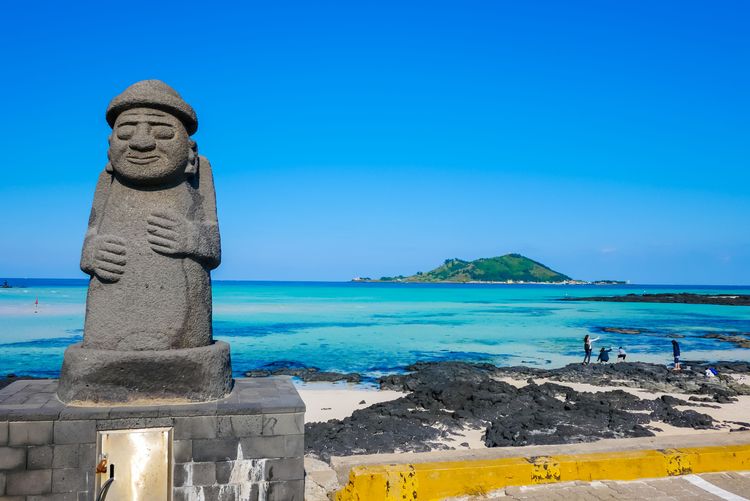
Statue on Jeju Island
- © Panwasin seemala / ShutterstockJeju Island is the semi-tropical island that is a popular holiday destination for locals and tourists alike. This area of outstanding natural beauty offers coastal walks, sandy beaches, lush green hills and a volcano to climb on a hike - for those who like a challenge. From snorkelling under the sea to hiking above the clouds, from traditional Jeju barbecue to drinking local green tea, so many exciting activities, sights, tastes and experiences await on Jeju Island.

Sunrise on Jeju Do Seongsan Ilchulbong, Jeju Island
- © Noppasin Wongchum / ShutterstockJeonju is famous for its historical and cultural sites, such as the Jeonju Hanok village, home to over 700 traditional Hanok houses. Jeonju's many impressive sites are within easy reach of each other and are perfect for a day trip from Seoul or Busan.
Gapyeong County is a region outside Seoul that is home to a number of interesting attractions celebrating Korean and foreign culture. Gapyeong's green hills and rivers make it an ideal place to immerse yourself in Korean nature.

Bongeunsa temple in Seoul's Gangnam district
- © ESB Professional / Shutterstock
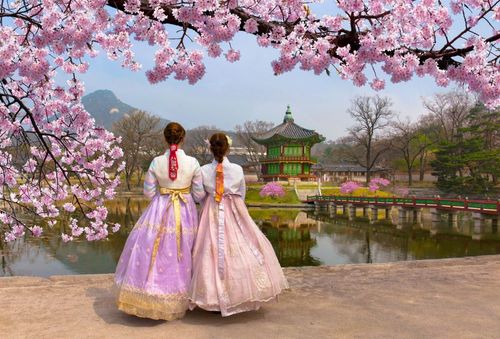
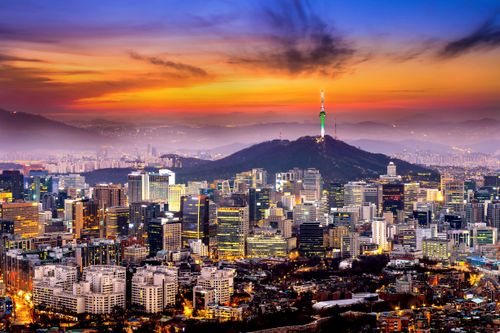
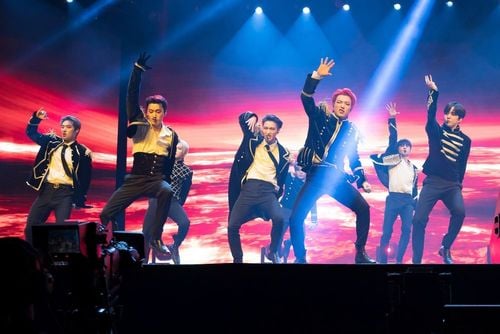
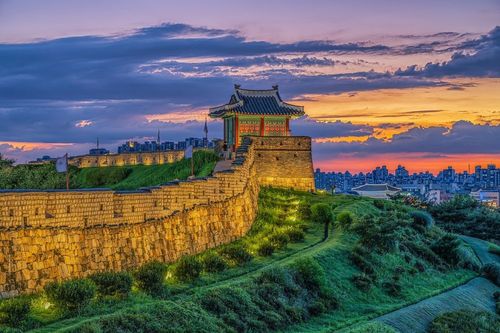
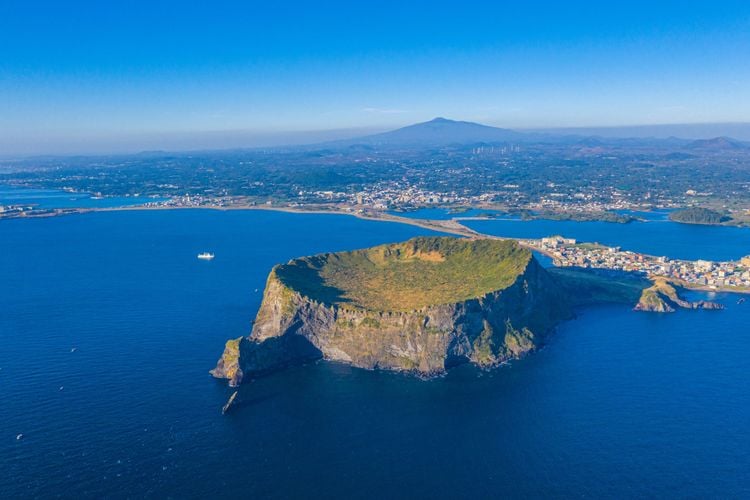 1
1
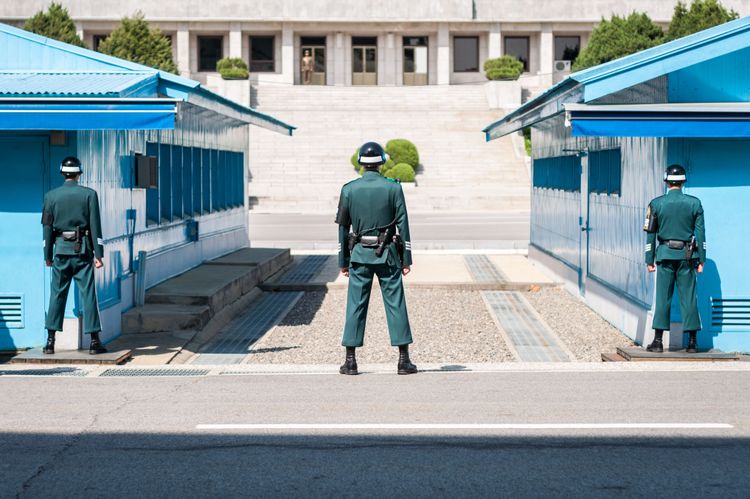 2
2
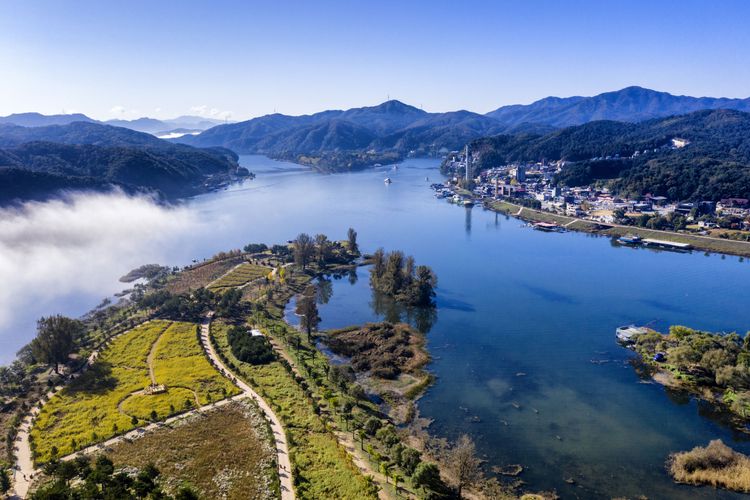 3
3
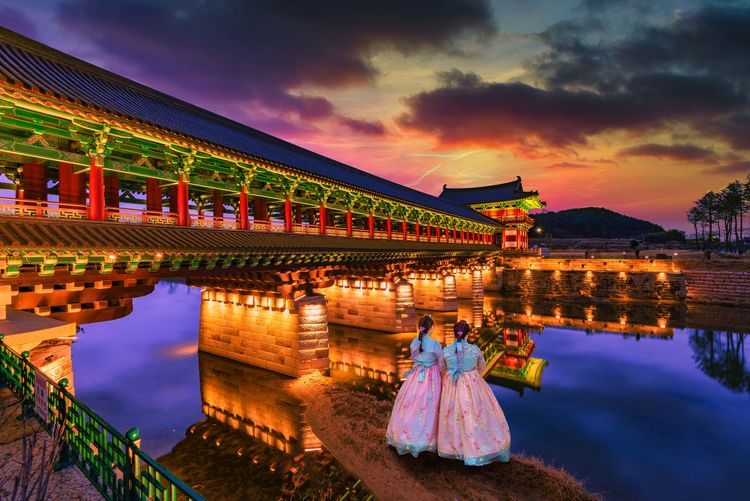 4
4
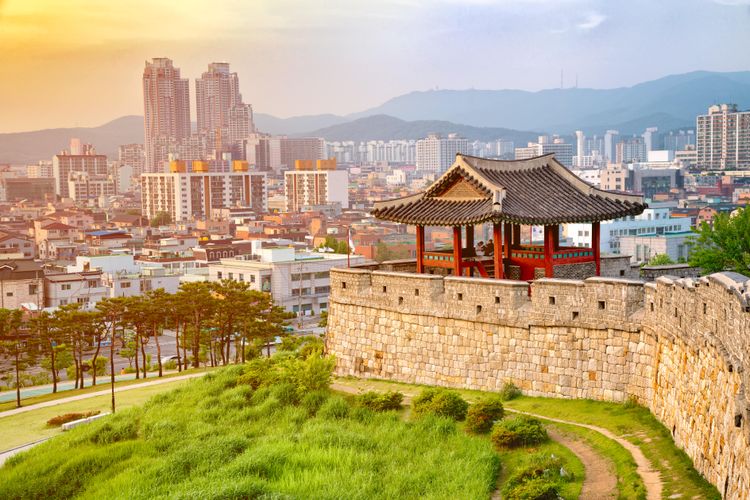 5
5
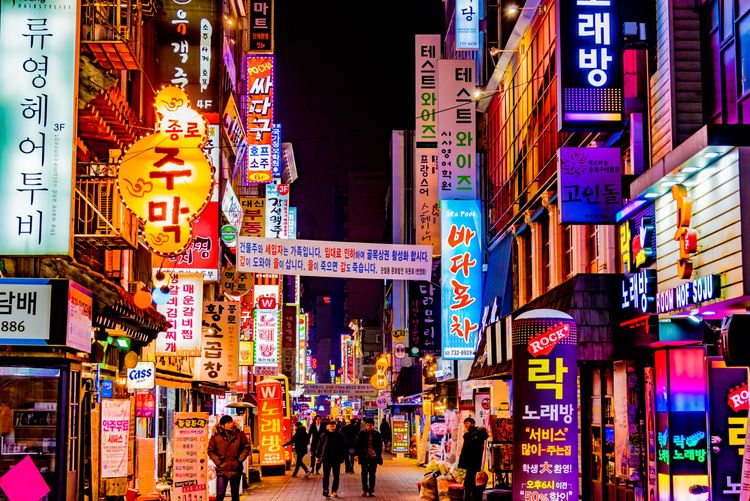 6
6
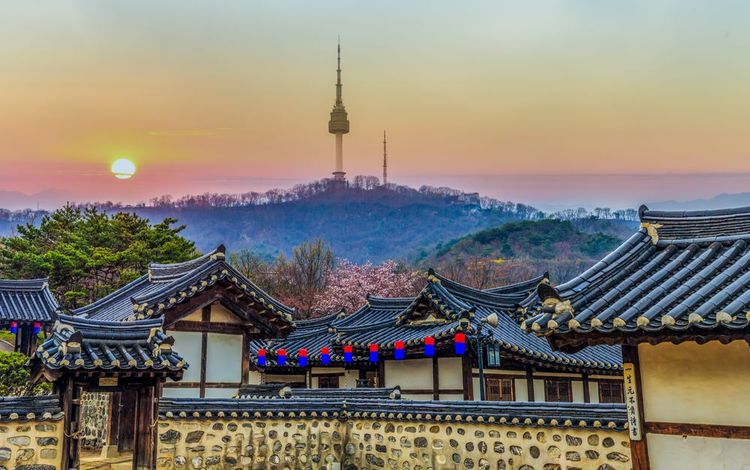 7
7
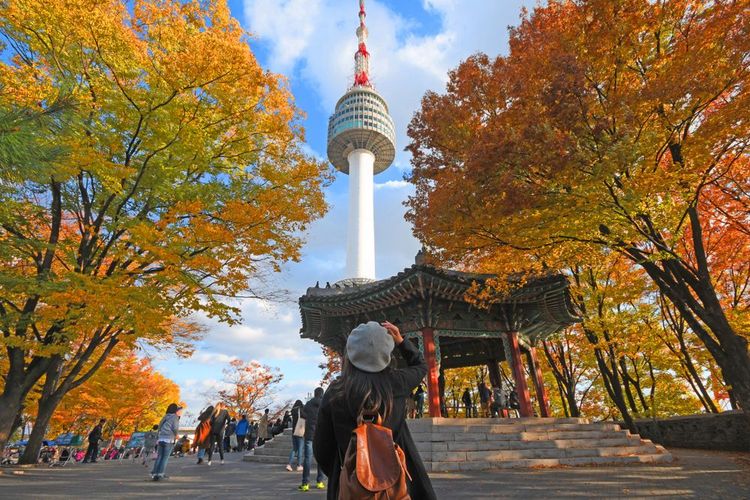 8
8
From Paris, it takes 12 hours to fly direct to Seoul. Air France, Korean Airlines and Asiana offer direct flights from France. Most flights depart from Paris-Charles-de-Gaulle airport and land at Incheon international airport (which is just over fifty kilometres from Seoul). The cheapest flights are one-stop flights with airlines such as Lufthansa (around €550) or Turkish Airlines (around €650).
South Korea has a wide range of hotels. Each region has a wide variety of hotels, motels and campsites to suit all budgets. Accommodation is most often found in Seoul's most popular districts, including the affluent Gangnam area, Seoul's trendiest student area, Hongdae, and the tourist area of Myeongdong.
Documents and visa :
For French citizens, travelling to South Korea requires a passport valid for 6 months after the date of return. A visa is not required for tourist stays of less than three months. Since September 2021, all travellers must obtain the Korea Electronic Travel Authorization (K-ETA) before boarding. Applications can be made online at www.k-eta.go.kr and cost €8. It takes between 1 and 3 days to obtain the authorisation, which is valid for two years.
From 30 September 2022, travellers no longer need to undergo a PCR/RAT test before departure or on arrival, and they no longer need to be quarantined on arrival (since 1 April 2022). Vaccination status in no way affects the right to travel to South Korea.
Telephone and Internet:
Before travelling to Korea, it is a good idea to order a SIM card or a portable WiFi router to collect from the airport so that you can be connected as soon as you arrive. Korea has some of the best mobile Internet in the world, and prices are very reasonable. 5G mobile internet services are available throughout the country.
Buying a Korean SIM card gives you access to a Korean phone number, which is useful when using Korean applications, or ordering food online. Prices start at W5,900 (€4) for one day or 10-day (€26) or 30-day (€48) SIM cards. These all come with unlimited data. The cost of a Korean pocket WiFi router is W3,200 (€2.40) a day.
Money :
The won is used. 1 euro is equivalent to 1388 won. Travelling to any country involves potential scams, bad exchange rates, mistakes and confusion when it comes to dealing with the change of currency. Fortunately, travellers to South Korea have a wide range of options for managing money. Korea is a safe and modern country that embraces payment cards. Almost all places (restaurants, hotels, shops, transport) accept this method of payment. Cash is useful for paying for street food or purchases at the market. Exchanging money at the airport is easy and convenient, but the exchange rate is generally higher than in other places in Korea. If you need money as soon as you land, withdraw a small amount (50 euros), then exchange the rest in Seoul.
Best time :
The best time to visit South Korea is during the spring or autumn seasons. Ideally, the months of April, May, September and October should be favoured. South Korea has four very distinct seasons. Each season offers opportunities to admire unique natural sights.
In spring (from March to May), the beautiful cherry blossoms appear and light up the whole country. Some of the best spring festivals are the Jinhae Cherry Blossom Festival and the Damyang Bamboo Forest Festival. In summer (June to August), the weather is perfect for relaxing on one of Korea's many beaches. Camping or glamping, hiking in the shady valleys of the national parks and water sports such as surfing, kayaking and scuba diving are all popular activities during this period. Autumn (September to November) is the perfect time to admire the red and orange foliage. Like spring, autumn in Korea has its share of festivals and celebrations: the Andong Mask festival, the Baekje Culture festival, the Jinju Namdang Yudeung Lantern festival, the Jeonju Bibimbap festival and the Seoul Kimchi festival. Winter (December to February) in Korea offers more extreme weather than spring and autumn, with very cold temperatures. Winter is the driest season and it rarely rains. However, it is during this season that you can see some of Korea's snow-covered landscapes. Winter sports are popular in Korea, with multiple ski and snowboard resorts.
Safety:
South Korea is a safe destination and it's easy to feel at ease getting around in all areas. The crime rate is low due to authoritarian regimes run by military forces. South Korea is one of the few countries where it is safe to walk the streets at any time of day. However, you still need to be vigilant.
Google Maps doesn't work well in South Korea, especially for finding your way around on foot. A little tip: download the Naver Maps application, which shows bus timetables and fares (rather useful as public buses don't have signs in English).
explore Try out our comparators
It is Easy to travel
